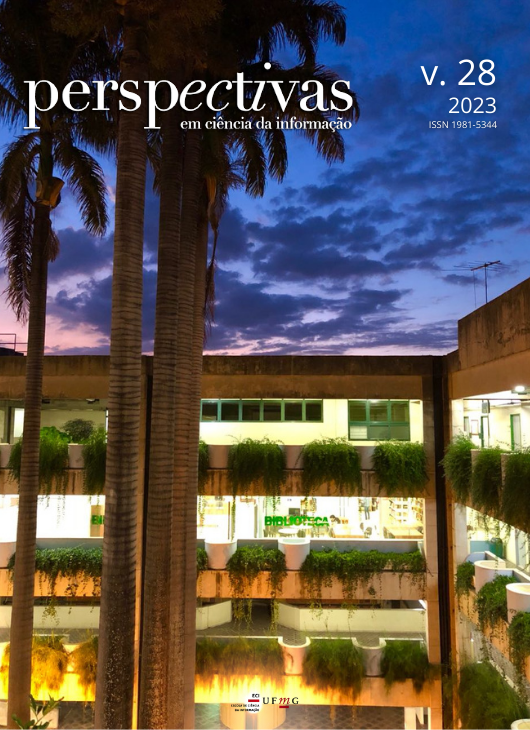Scientific production assessment in a computer science department: a single-case study
Palavras-chave:
Bibliometric, Data analysis, Co-authorship network, Pattern recognitionResumo
Bibliometric assessment is an intense research topic with multiple applications, from the evaluation of faculty productivity and the researcher's career trajectory, to the analysis of emerging trends and themes in a research area. In this study we analyzed the brazilian researchers' résumés of 36 professors from a computer science department. To accomplish that we used publication data extracted from Lattes Platform, an online repository of brazilian researchers' résumés. Our goal was to evaluate the productivity of each professor, in terms of both quantity and quality, over a five years period, as well as, the co-authorship network produced. Additionally, we investigated if the productivity of the researcher is a good predictor for PQ scholarship as, according to CNPq (Brazilian National Council for Scientific and Technological Development), one of the criteria to grant this scholarship is the professor's curriculum
Referências
ALBERTINI, M. K., BACKES, A. R., & DE SÁ, A. L. (2019). A study of publication trajectories of the brazilian computer science community. Anais da Academia Brasileira de Ciências, 91 (3), 1–12.
BORDIN, A. S., GONÇALVES, A. L., & TODESCO, J. L. (2014). Departmental scientific collaboration analysis through coauthorship networks. Perspectivas em Ciência da Informacão, 19 (2), 37–52.
BOWYER, K. W., CHAWLA, N. V., HALL, L. O., & KEGELMEYER, W. P. (2011). SMOTE: synthetic minority over-sampling technique. CoRR, abs/1106.1813 . Retrieved from http://arxiv.org/abs/1106.1813
CAÑIBANO, C., & BOZEMAN, B. (2009). Curriculum vitae method in science policy and research evaluation: the state-of-the-art. Research Evaluation, 18 (2), 86–94.
DA SILVA, A. J. N., BREVE, M. M., MENA-CHALCO, J. P., & LOPES, F. M. (2020). Analysis of co-authorship networks among brazilian graduate programs in computer science. CoRR,abs/2012.12439. Retrieved from https://arxiv.org/abs/2012.12439
MATHEW, G., AGRAWAL, A., & MENZIES, T. (2017). Trends in topics at se conferences (1993-2013). In 2017 ieee/acm 39th international conference on software engineering companion (icse-c) (p. 397-398). doi: 10.1109/ICSE-C.2017.52
QUINLAN, J. R. (1993). C4.5: programs for machine learning. San Francisco, CA, USA: Morgan Kaufmann Publishers Inc. Retrieved from http://portal.acm.org/citation.cfm?id=152181
VASILESCU, B., SEREBRENIK, A., MENS, T., VAN DEN BRAND, M. G., & PEK, E. (2014). How healthy are software engineering conferences? Science of Computer Programming, 89 , 251–272.
WAY, S. F., MORGAN, A. C., CLAUSET, A., & LARREMORE, D. B. (2017). The misleading narrative of the canonical faculty productivity trajectory. Proceedings of the National Academy of Sciences of the United States of America, 1–8.
WONG, W. E., MITTAS, N., ARVANITOU, E.-M., & LI, Y. (2021). A bibliometric assessment of software engineering themes, scholars and institutions (2013-2020). J. Syst. Softw, 180 , 111029.
Downloads
Publicado
Edição
Seção
Licença
Copyright (c) 2023 Andre Backes

Este trabalho está licenciado sob uma licença Creative Commons Attribution 4.0 International License.



